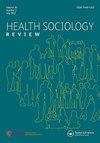健康行为中的文化资本和性别差异:关于饮食、吸烟和饮酒模式的研究
IF 2.5
2区 医学
Q2 HEALTH POLICY & SERVICES
引用次数: 28
摘要
摘要人们普遍认为,社会经济地位较高的人和女性吸烟较少,避免酗酒,饮食更健康。然而,人们对社会经济地位与性别的相互作用知之甚少,尤其是在意大利的背景下。在这里,我们通过阿贝尔对布迪厄文化资本理论和考特尼性别建构与健康理论的改编来解决这个问题。利用2012年《日常生活》多用途调查的数据,我们首先表明,在预测成年人遵守健康建议方面,文化资本优于社会阶层,尽管这对酒精摄入来说并不成立。然后,我们研究了性别与文化资本指标的相互作用,以确定性别化的消费形式如何随着文化资本水平的提高而变化。研究结果表明,文化资本水平越高,性别差距就越小,这有两种模式:男性的边际福利增长率往往高于女性;然而,我们也发现有证据表明,这种差距缩小是因为随着文化资源水平的提高,女性开始采取不健康的行为。总体而言,这些发现表明,文化资本在重建性别榜样方面发挥着重要作用。本文章由计算机程序翻译,如有差异,请以英文原文为准。
Cultural capital and gender differences in health behaviours: a study on eating, smoking and drinking patterns
ABSTRACT It is widely acknowledged that people with higher socioeconomic positions and women smoke less, avoid alcohol abuse, and eat more healthily. Yet far less is known about the interaction of socioeconomic status with gender, especially in the Italian context. Here we address this issue by employing Abel’s adaptation of Bourdieu’s cultural capital theory and Courtenay’s theory of gender construction and health. Using 2012 data from the Multipurpose survey on Daily Life, we first show that cultural capital is better than social class in predicting an adult’s compliance with health recommendations, although this does not hold true for alcohol intake. We then look at the interaction of gender with cultural capital measures in order to determine how gendered forms of consumption change with increasing levels of cultural capital. The results show that the gender gap diminishes at higher levels of cultural capital following a twofold pattern: most often men’s marginal benefit increases at a higher rate than that of women; however, we also find evidence that the gap diminishes because women start adopting unhealthy behaviours as their level of cultural resources increases. Overall, these findings indicate that cultural capital plays an important role in reconstructing gender role models.
求助全文
通过发布文献求助,成功后即可免费获取论文全文。
去求助
来源期刊

Health Sociology Review
Multiple-
CiteScore
7.50
自引率
0.00%
发文量
14
期刊介绍:
An international, scholarly peer-reviewed journal, Health Sociology Review explores the contribution of sociology and sociological research methods to understanding health and illness; to health policy, promotion and practice; and to equity, social justice, social policy and social work. Health Sociology Review is published in association with The Australian Sociological Association (TASA) under the editorship of Eileen Willis. Health Sociology Review publishes original theoretical and research articles, literature reviews, special issues, symposia, commentaries and book reviews.
 求助内容:
求助内容: 应助结果提醒方式:
应助结果提醒方式:


